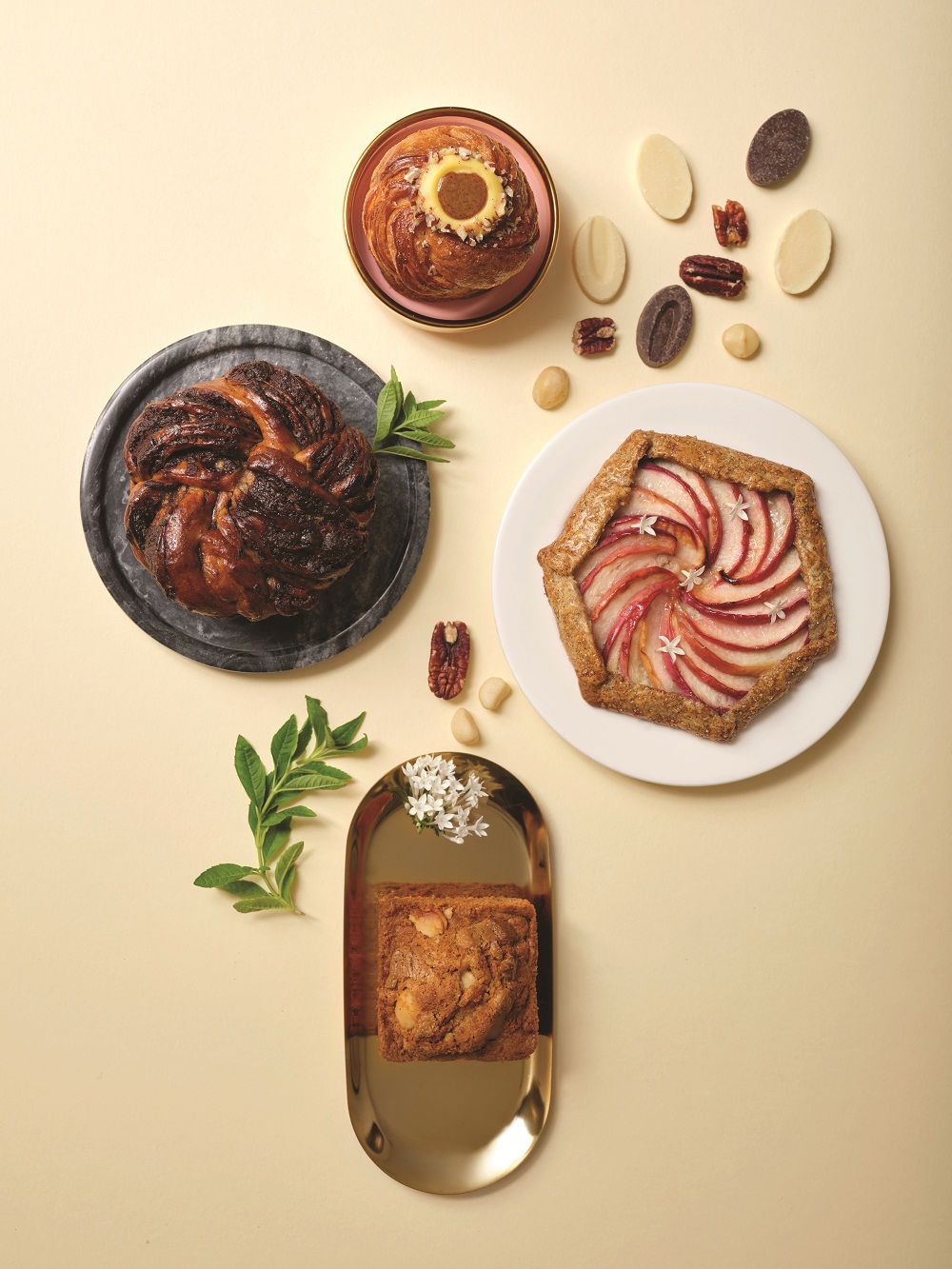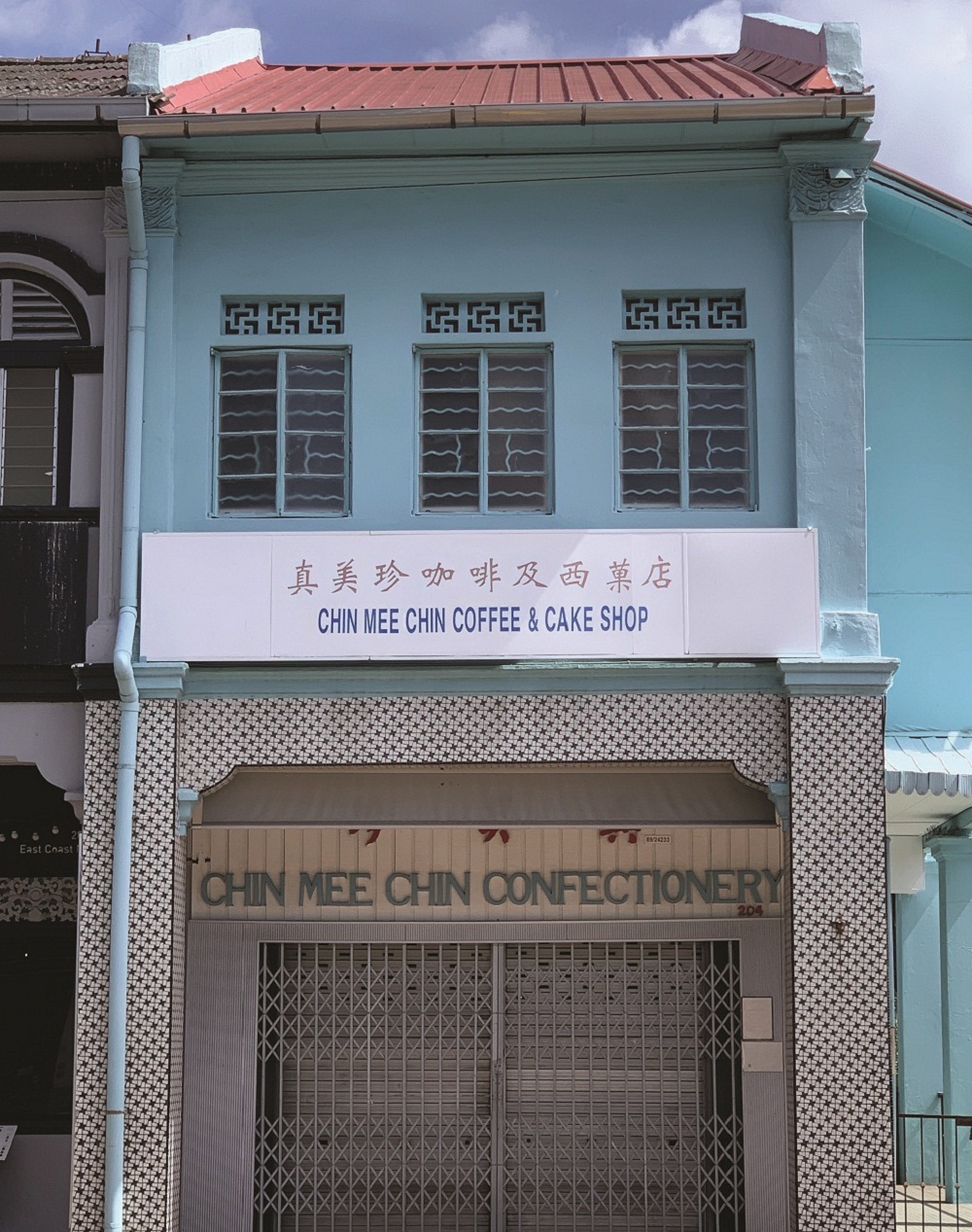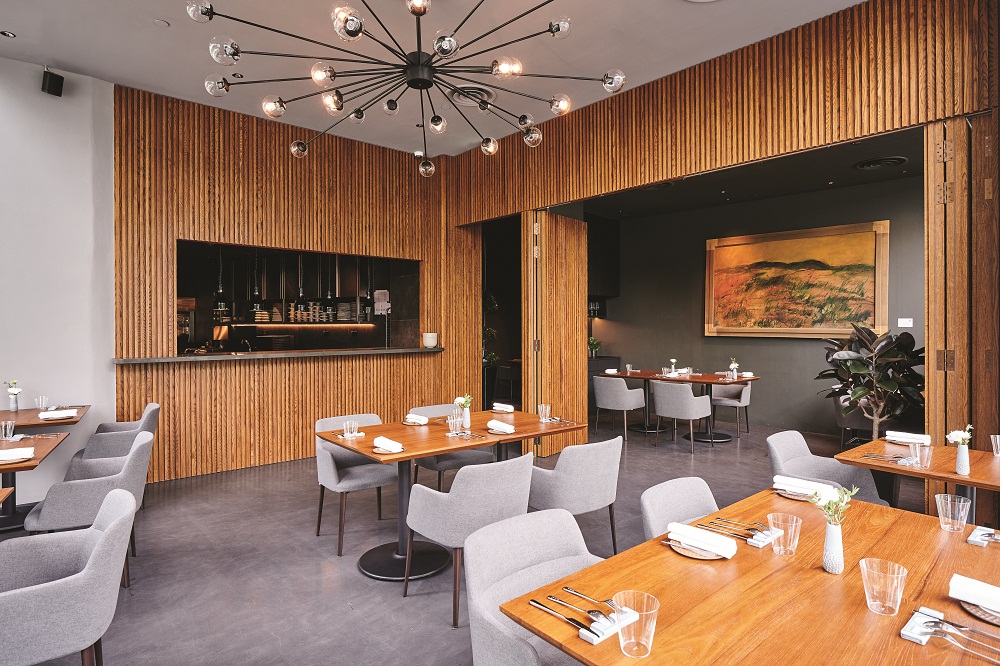How was it possible that 2020 was a wildly successful year for F&B and tech company Ebb & Flow, which managed to launch eight concepts at the height of the global pandemic? CEO Lim Kian Chun tells all.

Food plays a big role in the formative years of most Singaporeans, especially since the country has a reputation of being a culinary wonderland. Lim Kian Chun, the CEO of Ebb & Flow Group, an F&B and tech company, is no exception. “My favorite memories growing up are all centered around food,” reveals the 28 year old. “A good bowl of wanton mee at Eng’s, having weekly Sunday lunches at my grandparents’ house, or scarfing down pizza after rugby training with my teammates. Food brings people together and creates communal and shared experiences.”
However, he admits that how he came to be in the business wasn’t for any sentimental reasons, but rather a commercially-driven one. “When I saw an investment opportunity to buy over Bacchanalia in January 2018, which was in debt at that time, and to make something out of it. It was at a relatively affordable cost, especially for a restaurant with a Michelin star,” he candidly shares.
Tell us more about the early days of Ebb & Flow, as well as the lessons you have learned since the first project, which involved taking over and rebranding Bacchanalia to Vianney Massot Restaurant.
Ebb & Flow Group was founded with my partners, Philipp K. Helfried and Feline Gondokusumo back in April 2018, when we consolidated several F&B projects we were working on. There was a lot of work needed to restructure operations and processes, and we made many mistakes along the way.
In August 2018, Bacchanalia’s former head chef, Luke Armstrong, decided to leave for another opportunity in Japan, and at around that time, we found out that the Robuchon restaurants at Resorts World Sentosa were closing. We took the opportunity to hire L’Atelier de Joel Robuchon’s former head chef, Vianney Massot, and some members from his team — including Maxine Ngooi as pastry chef.
We revamped the space, reopened it as Vianney Massot Restaurant and earned a Michelin star under the new brand. But it wasn’t long before we had to close in June last year when COVID-19 hit, and we subsequently parted ways with Vianney.
The loss, though somewhat mitigated with government support measures, was very painful, but we took that time to evaluate the kind of product we wanted to create in the longer term. And that experience further cemented my belief that restaurants and F&B businesses need to be anti-fragile — by having diversified streams of revenue.
The other positive thing that came out of that experience were the talented individuals we worked with who were part of Vianney Massot’s team, and whom we subsequently collaborated with on other projects. Lewis Barker, who was previously sous chef at Vianney Massot Restaurant, is now our head chef at Sommer. During the circuit breaker, we also started an online patisserie concept — Tigerlily Patisserie — in partnership with Maxine Ngooi (using the Vianney Massot Restaurant space as a cloud kitchen). It is doing so well that we will be opening the first brick and mortar store for it in June. We have also partnered with Maxine for Chin Mee Chin. As executive chef and co-owner of both brands, Maxine is heavily involved in the menu development and will be overseeing operations of the outlets when they launch in June.

Dining and AI/tech seem to be an unlikely pairing, as most would associate dining with the human touch. Can you explain why you think this is the way forward?
I believe technology allows F&B businesses to widen and deepen their reach, whether it’s selling via online channels or understanding their customer base better using data and insights. F&B businesses need to be able to own the end-to-end customer experience and a big part of that is using technology to empower themselves.
As a technology-led F&B company, Ebb & Flow leverages on technology to create better concepts, products, and experiences. For example, the general inadequacies of various food delivery platforms led us to develop our own in-house app, Tabletop. Another example is that we work with a Singapore-based AI startup, SQREEM, to understand the tastes and preferences of our customers, analyzing behavioral data points to map trends and buying intent of different consumer groups in Singapore.
To that end, we launched Wrap Bstrd, Singapore’s first food and beverage brand that is driven entirely by insights derived from artificial intelligence. Working with SQREEM, we were able to discern that our customers preferred Asian flavors in a fuss-free fashion. Similarly, we launched our vegan brands, Love Handle Burgers and Sunny Slices, when we noticed a steady increase in demand for vegan and vegetarian options, which is in line with a shift towards conscious consumption and sustainable living.
However, it is not just purely AI/technology, but a combination of opportunity and talent as well. Since we have a talented team of chefs, I would like to say that they are the key pillars behind each brand. While technology is important, what really makes a brand successful is the human touch and the passion of the chefs for creating an exceptional product and experience for the customer.
Would you say Ebb & Flow was somewhat ready for the challenges that COVID-19 brought about? Tell us more about the company’s experience during that period, particularly during the Circuit Breaker?
I would say we are extremely lucky that we were already exploring cloud kitchens and virtual brands back in 2019. Not long after we launched Wrap Bstrd, the city went into circuit breaker mode, which precipitated the boom in delivery. We were well-positioned with cloud kitchens in place to launch a series of delivery concepts catering to different audience segments, including Japanese, Malay, and Chinese food, burgers, and even launching an online Japanese gourmet shop, Supafresh, and our own caviar distribution line, Kairos.
All in all, we launched eight brands in 2020. It was exhausting, but also personally rewarding as the act of eating, sharing a meal, or going to a restaurant is a joyful experience for many.
As we slowly ease into some level or normality, how is the group approaching the business of food and dining going forward?
On the restaurant side of things, we are keeping busy. We recently launched a multi-concept eatery at Tanjong Katong Road called Katong Kanteen, which houses four brands under one roof to cater to the diverse tastes of the Katong community. It features zhi char from Long Tang Zhi Char, which is an offshoot of our modern Chinese restaurant, The Dragon Chamber; Cantonese-style roast meats from Long Tang Roasts; and high quality Japanese dining and Japanese burgers from Mirai Burgers and Hoshi Hill, respectively.
We are also working with Nicolas Tam, who was previously with Joel Robuchon Restaurant, Zén, and Esora, to open a Japanese kappo style restaurant called Willow, which will be opening in July. It’s not quite a typical Japanese restaurant in the strictest sense of the word. Kappo is the concept of ‘cutting and cooking’, and the kind of food that will be served at Willow will be influenced by Nicolas’ past working experiences. The Japanese conviction of respecting ingredients and seasonality without compromising on quality, while also incorporating his Chinese roots and heritage, will serve as pillars at Willow as well.
I am confident that domestic demand will remain strong in the next 12 months, so if we see good opportunities to launch brands that fit within our current portfolio, then we will continue to do so, allowing us to build a strong base in Singapore. Beyond that, we are looking to expand into the Southeast Asia region. But we are not in a rush. We just want to build a great company that will be here for the long haul.
From the Wrap Bstrd concept, an artisan bakery like Tigerlily, to a fine dining restaurant such as Sommer, we are also looking forward to the work you are doing with Chin Mee Chin. What made you decide to add this institution to your portfolio?
For me, there is nostalgia and sentimentality attached to the Chin Mee Chin (CMC) brand, having grown up in the neighborhood and eating their kaya toast for breakfast. However, as a business, we needed to evaluate it from a commercial angle. When I first heard of the opportunity in January 2020, I felt it was a viable business as CMC is a strong brand with cultural relevance. There was also a sense of “duty” towards preserving the brand as it is part of a wider heritage shared by Singaporeans, especially for families who live in the East.
We want to ensure the legacy and tradition of this beloved brand is preserved, while modernizing aspects of the business and growing the brand in Singapore and beyond. Home delivery will also be a key aspect customers can look forward to, relying on our fully integrated infrastructure, including our own fleet of drivers to deliver to local customers beyond the area.
The menu, which is still being finalized, will feature a mix of signature items and new items, which will be added in due time. Regulars can look forward to enjoying the signature kaya and buns, along with favorites like custard tarts, cream puffs, cream horns, and luncheon meat buns. We will also be able to bring back some of the old-school techniques like charcoal grilling the kaya buns, which was previously stopped due to the lack of manpower. Maxine is also working closely with the family to ensure the authenticity and taste of the heritage recipes, whilst also working on a slew of new bakery items, such as peanut butter chocolate tarts and a coffee gula Melaka chiffon cake.
Do you consider yourself a foodie? If not eating at your concepts, what and where do you love to eat?
I consider myself a foodie, but most of the time I prefer simple food. I enjoy trying different restaurants as well and most times, I appreciate the creativity and passion that goes into making a dish or a great customer dining experience. Recently, I’ve enjoyed eating at Wine Rvlt and Peach Blossom.
Beyond food, what else are you busy with?
We are now busy developing our proprietary food experience app called Tabletop, where users can order food from novel brands, consume content around food, and connect with unique F&B brands and chefs, and F&B personalities all in one platform. This will allow users to experience food in a totally new way. We are looking to launch it by the end of the year.
